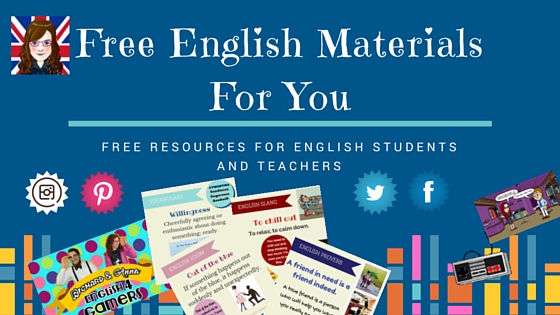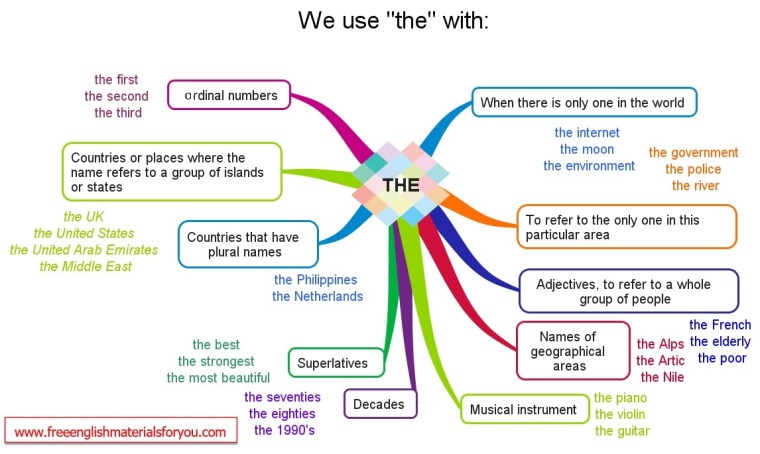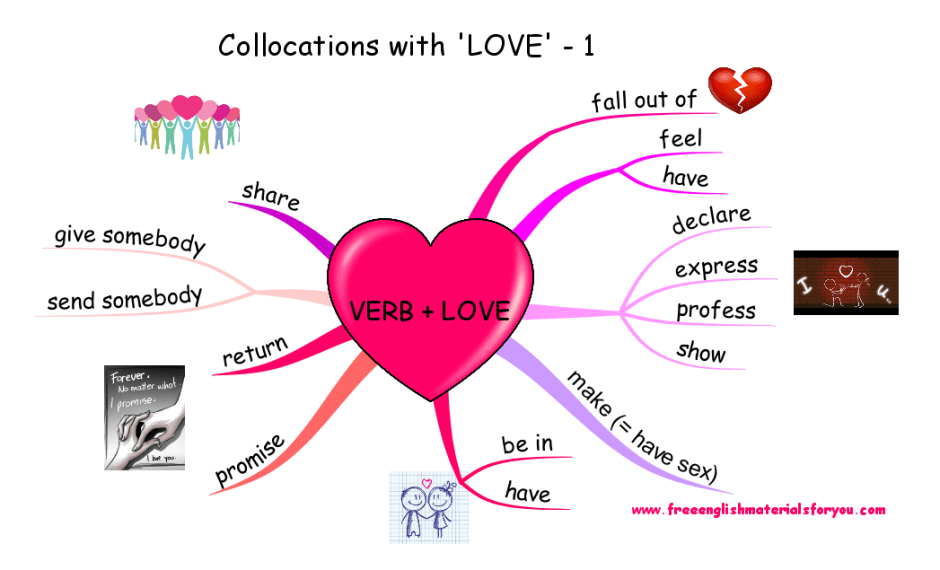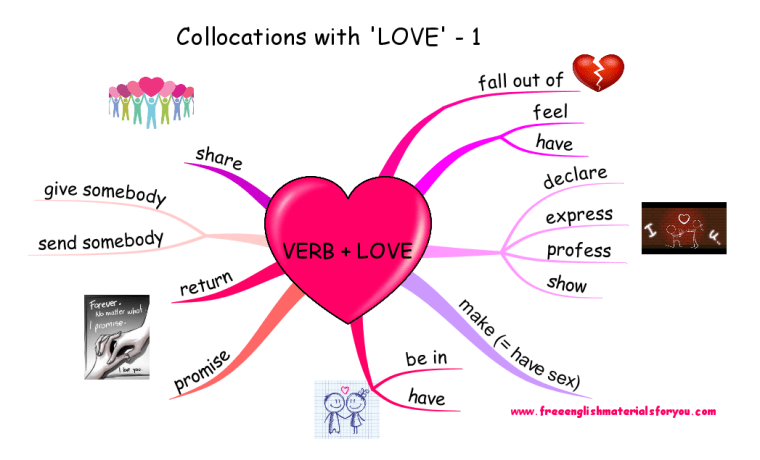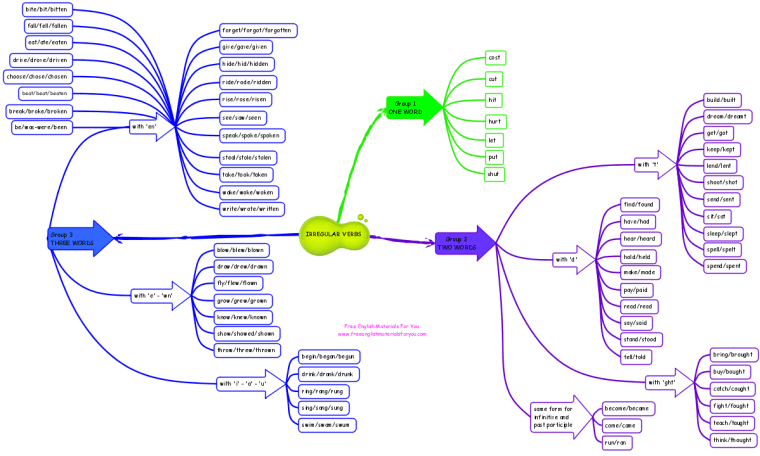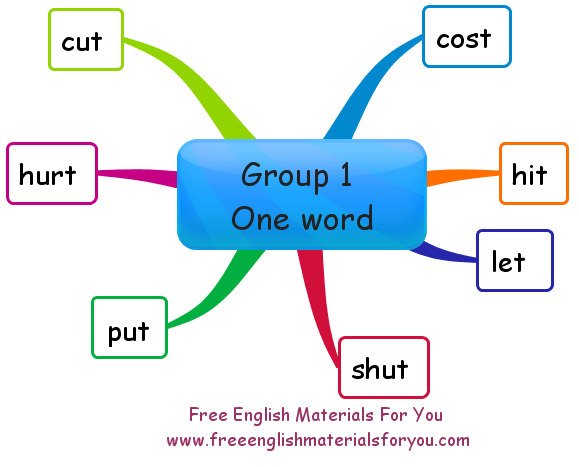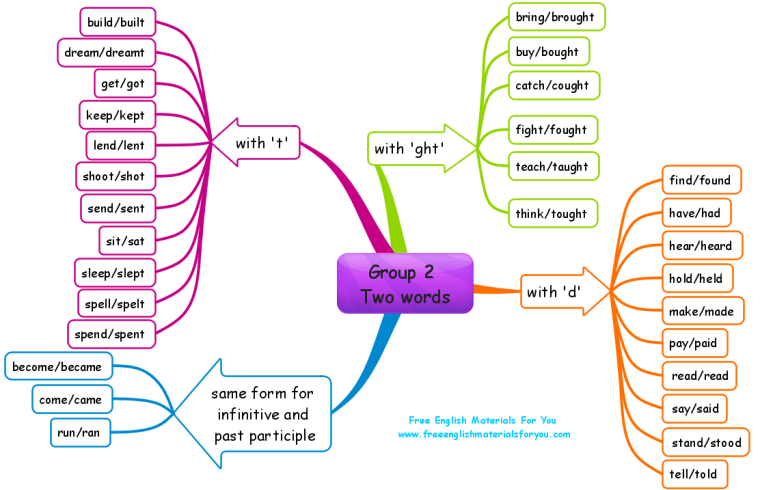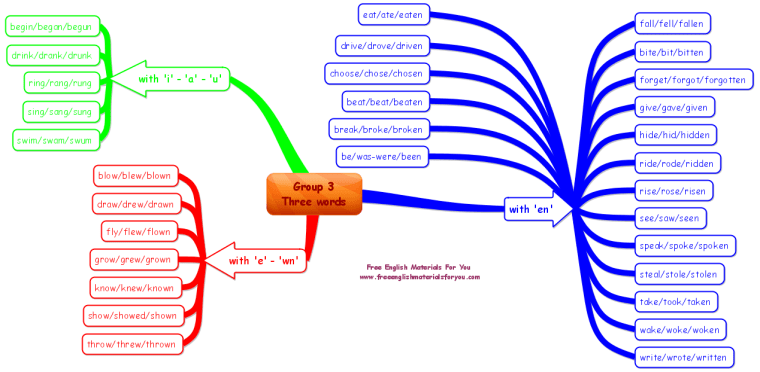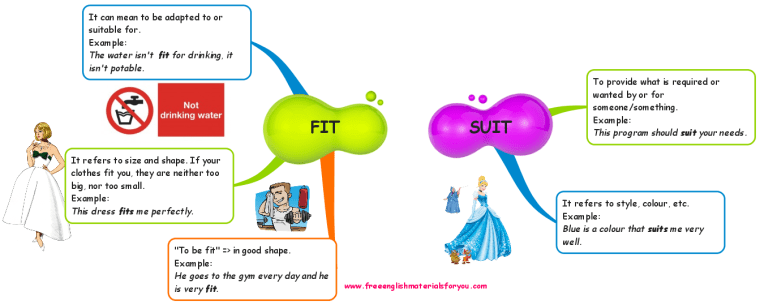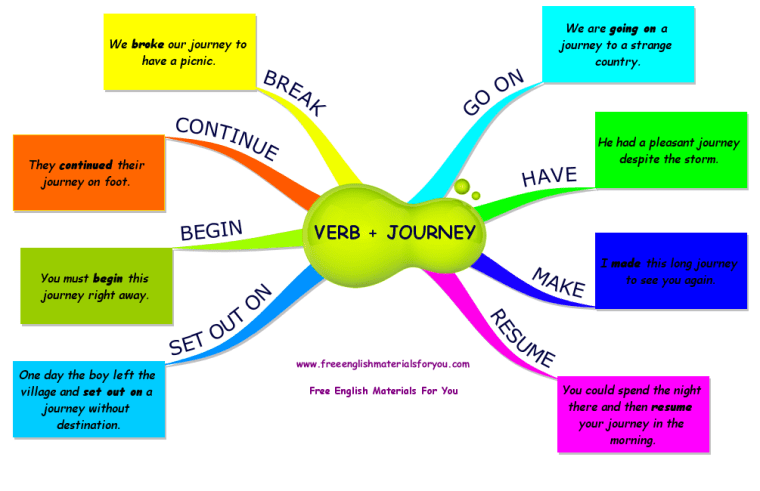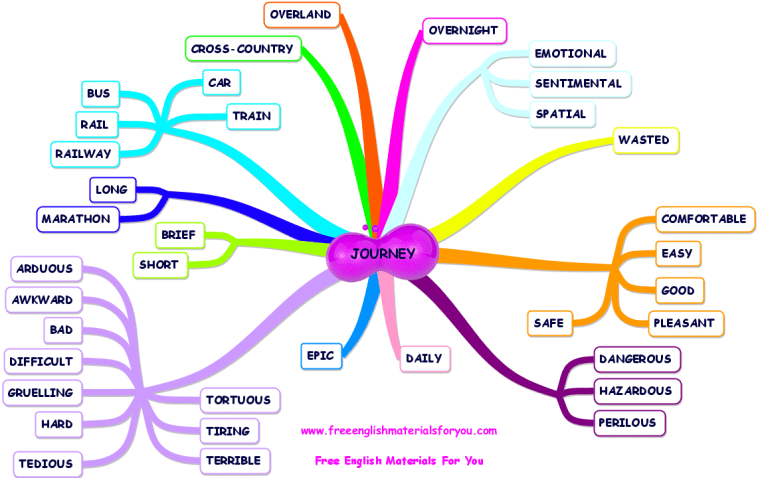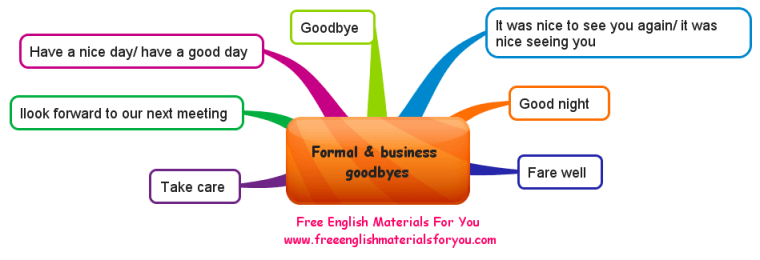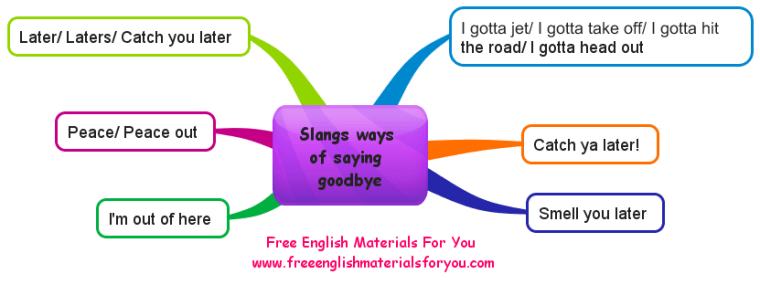When one verb is followed by another, we use the -ing form or the infinitive (with or without to. The form of the second verb depends on the first verb ;-).
Let’s learn them!
I hope this post helps you :-).
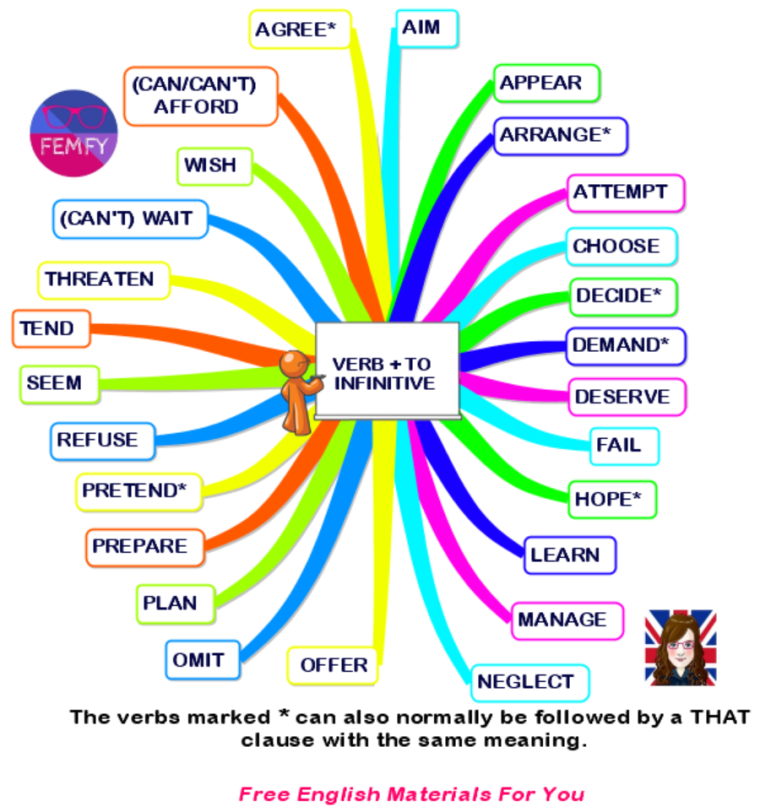
PDF version: verb+ to infinitive
I suggest that you take a look at Biggerplate.com for other amazing and informative mind maps!
VERB + TO INFINITIVE
- (CAN/CAN’T) AFFORD
- AGREE*
- AIM
- APPEAR
- ARRANGE*
- ATTEMPT
- CHOOSE
- DECIDE*
- DEMAND*
- DESERVE
- FAIL
- HOPE*
- LEARN
- MANAGE
- NEGLECT
- OFFER
- OMIT
- PLAN
- PREPARE
- PRETEND*
- REFUSE
- SEEM
- TEND
- THREATEN
- (CAN’T) WAIT
- WISH
Examples:
- She can’t afford to lose that vote.
- They agree to leave at 10:30 am.
- * They agree (that) they would leave at 10:30 am.
- We aim to launch next year.
- Keep me posted on what you decide to do.
- Your actions threaten to destroy everything we’ve worked for.
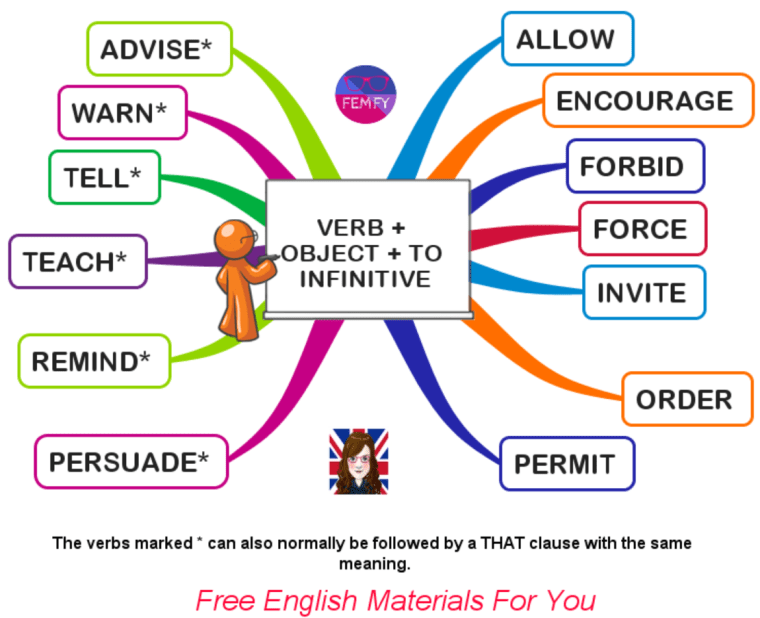
PDF version: verb + object + to infinitive
VERB + OBJECT + TO INFINITIVE
- ADVISE *
- ALLOW
- ENCOURAGE
- FORBID
- FORCE
- INVITE
- ORDER
- PERMIT
- PERSUADE*
- REMIND*
- TEACH*
- TELL*
- WARN*
Examples:
- We would advise you to follow the same path.
- The Administrative Board invites observers to attend its meetings.
- We were trying to persuade the witness to testify.
Advise, allow, encourage, forbid and permit can be followed by -ING too when there is no object.
- I would advise following the same path.
- We do not allow smoking.

PDF version: verbs + (object) + to infinitive
VERB + (OBJECT) + TO INFINITIVE
- ASK
- BEG
- EXPECT*
- HELP
- INTEND
- PROMISE
- WANT
Examples:
- I didn’t ask to work here.
- I didn’t ask you to work here.
- She begged him to read the story again.
- We expect the economy to improve.
- * We expect (that) the economy will improve.
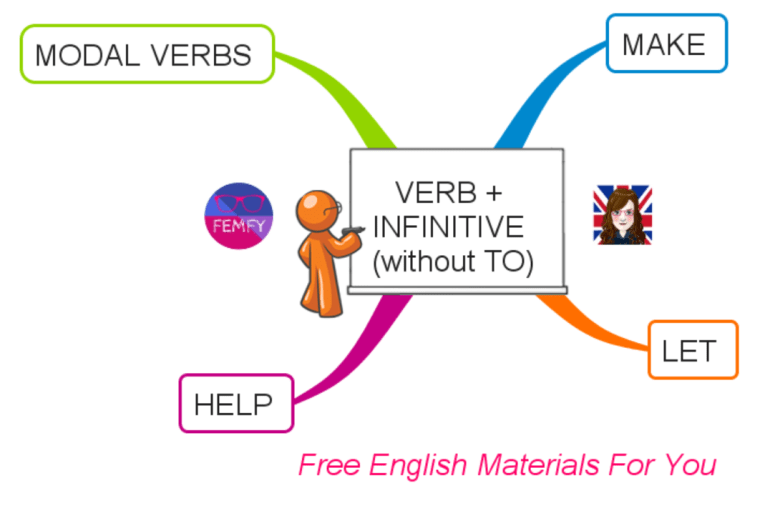
PDF version: verb + infinitive (without to)
VERB + INFINITIVE (without to)
- MODAL VERBS: can, could, may, might, must, needn’t, shall, should, will, would.
- HELP (can be followed by the infinitive with or without to).
- MAKE and LET (+ OBJECT) are always followed by the infinitive without TO.
Examples:
- You can borrow my shirt.
- She might go to Paris.
- She helped (to) organise the party.
- Don’t make me add this to the list.
- After you finish, let the students copy it.
